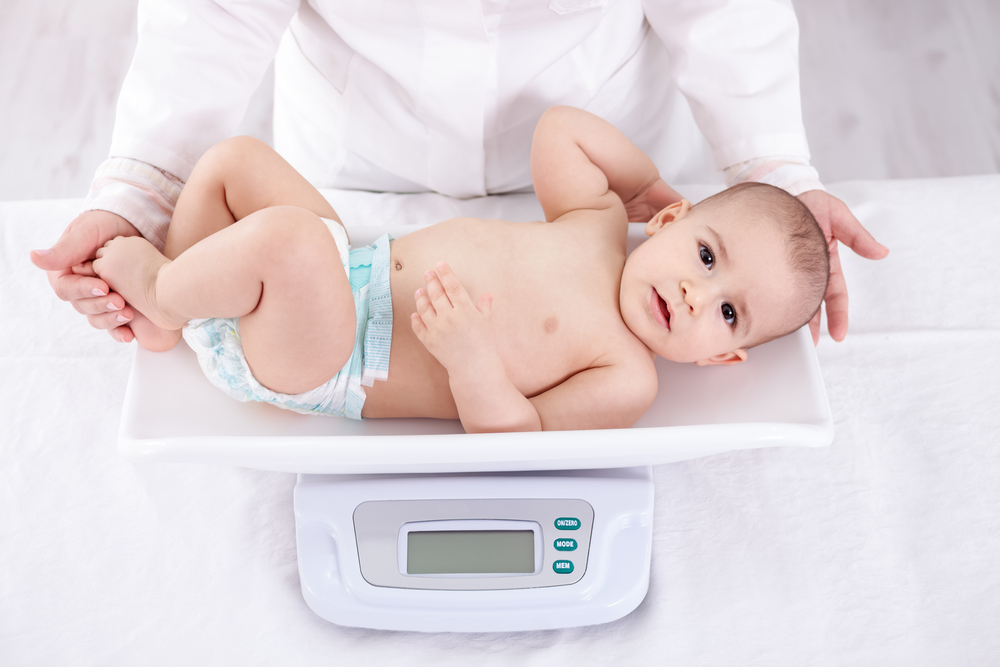Common Health Checks During Your Newborn's First Check-Up
Common Health Checks During Your Newborn's First Check-Up
Blog Article

Welcoming a newborn into your family is an exciting and joyful experience. Along with the joy, however, comes the responsibility of ensuring your baby's health and well-being. One of the crucial steps in this journey is scheduling your newborn's first check-up. This initial visit to the pediatrician is essential for assessing your baby's health and addressing any concerns early on. In this blog post, we'll explore the common health checks performed during your newborn's first check-up, providing you with valuable insights into what to expect during this important appointment.
First and foremost, your pediatrician will conduct a thorough physical examination of your newborn. This examination typically includes assessing your baby's weight, length, and head circumference to ensure they are within the normal range for their age. Monitoring these measurements is vital for tracking your baby's growth and development over time. Any deviations from the expected growth patterns may indicate underlying health issues that need further evaluation.
In addition to physical measurements, your pediatrician will also examine your baby's overall appearance and behavior. They will observe your baby's muscle tone, reflexes, and responsiveness to stimuli. These observations help the pediatrician evaluate your baby's neurological development and identify any potential concerns, such as developmental delays or abnormalities.
Another critical aspect of the first check-up is assessing your newborn's feeding habits and nutritional intake. Whether you're breastfeeding or formula feeding, your pediatrician will discuss your baby's feeding schedule, latch, and milk intake. They may offer guidance and support to address any feeding challenges you may be facing and ensure that your baby is receiving adequate nutrition for healthy growth and development.
During the first check-up, your pediatrician will also address important topics such as sleep patterns, diapering, and general care practices. They may provide recommendations on creating a safe sleep environment for your baby, proper diapering techniques, and maintaining good hygiene practices to prevent infections. This guidance is invaluable for new parents navigating the challenges of caring for a newborn.
Immunizations are another crucial aspect of your baby's first check-up. Your pediatrician will discuss the recommended vaccination schedule and administer any vaccines that are due according to your baby's age. Vaccinations play a vital role in protecting your baby from serious infectious diseases, and adhering to the recommended schedule helps ensure optimal immunity.
In addition to the physical examination and discussions about feeding, sleep, and immunizations, your pediatrician will also address any specific concerns or questions you may have as a new parent. Whether it's about soothing techniques, developmental milestones, or signs of illness to watch out for, your pediatrician is there to provide support and guidance every step of the way.
It's important to remember that your baby's first check-up is just the beginning of a lifelong journey of health and wellness. Regular visits to the pediatrician are essential for monitoring your baby's growth and development, addressing any concerns promptly, and receiving guidance on parenting and healthcare practices.
In conclusion, your newborn's first check-up is a critical milestone in their early life. During this appointment, your pediatrician will conduct a thorough physical examination, assess your baby's growth and development, discuss feeding and nutrition, administer vaccinations, and address any questions or concerns you may have as a new parent. By prioritizing your baby's health and well-being from the very beginning, you're setting them up for a lifetime of good health and happiness.
General FAQs:
What happens during my newborn's first check-up?
During your newborn's first check-up, the pediatrician will conduct a thorough physical examination to assess your baby's overall health. This includes measuring your baby's weight, length, and head circumference to track their growth and development. The pediatrician will also examine your baby's appearance, muscle tone, reflexes, and responsiveness to stimuli to evaluate their neurological development. Additionally, the doctor will discuss feeding habits, sleep patterns, diapering, and general care practices with you.
Why are physical measurements important during the first check-up?
Physical measurements such as weight, length, and head circumference are crucial for monitoring your baby's growth and development. These measurements provide valuable information about your baby's health and well-being and help identify any potential issues early on. Monitoring your baby's growth over time allows the pediatrician to track their progress and ensure they are meeting their developmental milestones.
What should I expect regarding feeding during the first check-up?
During the first check-up, the pediatrician will discuss your baby's feeding habits and nutritional intake. Whether you're breastfeeding or formula feeding, the doctor will provide guidance and support to address any feeding challenges you may be facing. They will ensure that your baby is receiving adequate nutrition for healthy growth and development and may offer tips on proper feeding techniques and schedules.
Are immunizations administered during the first check-up?
Yes, immunizations are an essential part of your baby's healthcare routine, and they may be administered during the first check-up. The pediatrician will discuss the recommended vaccination schedule and administer any vaccines that are due according to your baby's age. Vaccinations play a crucial role in protecting your baby from serious infectious diseases and building immunity against them.
What should I do if I have specific concerns or questions about my newborn's health?
If you have specific concerns or questions about your newborn's health, don't hesitate to discuss them with your pediatrician during the first check-up. Whether it's about developmental milestones, signs of illness, or general care practices, your pediatrician is there to provide support and guidance. They can offer valuable insights and address any concerns you may have as a new parent, helping you navigate the challenges of caring for a newborn with confidence.